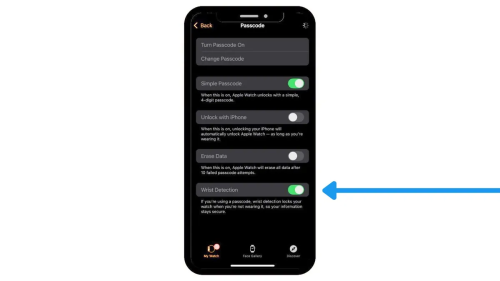Are Canadian Universities Better Than American Universities?. When it comes to higher education, both Canada and the United States boast some of the world’s top universities. However, there’s an ongoing debate about whether Canadian universities are “better” than their American counterparts.
While the quality of education in both countries is undoubtedly high, the choice between studying in Canada or the U.S. depends on a variety of factors, including academic reputation, cost, living expenses, and post-graduation opportunities. Let’s dive into the key differences between Canadian and American universities, and why fewer international students opt for Canada, despite its world-class institutions.
The Myth of “Better” Universities
At the core of the debate is the question of whether Canadian universities are inherently better than American ones. The answer is not a simple yes or no. Both countries offer high-quality education, but they are structured differently, and students have to weigh various factors before making a choice.
In Canada, there is a high level of consistency in the quality of education across the board. This is because most Canadian universities are publicly funded and held to rigorous academic standards. As a result, there aren’t any “bad” universities in Canada per se—just some that might not be as well-known or research-intensive. In contrast, the U.S. education system is more market-driven, which means it has a wider range of universities, from elite Ivy League institutions to less reputable for-profit colleges.
For example, while prestigious American institutions like Harvard, MIT, and Stanford are globally recognized for their academic excellence, there are also lesser-known institutions that prioritize profit over education quality.
For instance, Liberty University and University of Phoenix have faced criticism for their academic rigor and high tuition fees relative to the quality of education offered. In fact, some for-profit universities in the U.S. have been involved in legal battles for misrepresenting their value to students. Recently, Grand Canyon University, a large Christian-based school in the U.S., faced significant fines due to the high cost of its doctoral programs, despite being accredited.
On the other hand, Canadian universities are largely non-profit and focus heavily on academic performance. While Canada may not have as many world-renowned institutions as the U.S., its top universities, like University of Toronto (U of T), McGill University, and the University of British Columbia (UBC), offer education on par with the best in the world.
The difference lies in the breadth of options—Canada has fewer universities overall (around 200 compared to over 4,000 in the U.S.), so there are simply fewer spots available for students.
Affordability: A Key Advantage for Canada
One significant advantage Canadian universities have over their American counterparts is the cost of education. Tuition fees in Canada are generally much lower than in the U.S., especially when it comes to public institutions.
According to the Canadian Federation of Students, international undergraduate students in Canada pay around CAD 20,000-30,000 per year on average, while in the U.S., tuition for private universities can easily surpass USD 50,000 annually. Even public universities in the U.S. tend to be more expensive than those in Canada, particularly for international students.
However, despite the lower tuition, living expenses in Canada, particularly in large cities like Toronto, Vancouver, and Montreal, can be quite high. For example, housing in major Canadian cities is expensive, with a one-bedroom apartment in Toronto averaging CAD 1,500 per month.
Universities like U of T, York University, and Ryerson University (now Toronto Metropolitan University) struggle to provide enough student housing, forcing many students to find off-campus accommodation, which adds to the overall cost of living.
In contrast, while cities like New York and San Francisco are also expensive, students in smaller U.S. towns and cities may find lower costs of living compared to Canada’s urban centers. Furthermore, American universities often offer sports scholarships, which can significantly reduce costs for eligible students—an option that’s far less common in Canada.
The International Student Dilemma: Why Fewer Students Choose Canada
Despite the high quality and affordability of Canadian universities, fewer international students choose to study in Canada compared to the U.S. There are a few reasons for this:
- Limited Awareness: While Canada has some globally recognized universities, the U.S. dominates in terms of international reputation. Institutions like Harvard, Stanford, and MIT have become household names, and this global brand recognition attracts a large number of international students.
- Post-Graduation Opportunities: One of the major draws for international students in the U.S. is the potential for employment after graduation. The U.S. offers a 12-month Optional Practical Training (OPT) period for international students to work after completing their studies, with STEM students eligible for a 24-month extension. While Canada has its own Post-Graduation Work Permit (PGWP) program, which allows students to stay and work for up to three years, the allure of the American job market remains strong for many.
- Visa and Residency Policies: While Canada has a relatively straightforward path to permanent residency for international students, recent challenges have emerged. Some students see their study permits as a direct route to working and residing in Canada permanently. This has led to a rise in dubious educational consultants who promise easy paths to residency through enrollment in lesser-known institutions. Recently, Canada’s Prime Minister announced that the government is considering deporting over 70,000 students due to irregularities in their immigration status. This has created uncertainty for many prospective students.
- Cultural Appeal: For some students, American universities’ strong emphasis on sports, extracurricular activities, and campus life plays a significant role in their decision. The U.S. university experience is often portrayed as a blend of academics and recreation, which can be appealing for students looking for a well-rounded college experience. In contrast, Canadian universities tend to focus more on academics, with fewer resources dedicated to sports and recreational programs.
Conclusion: Making the Right Choice
So, are Canadian universities better than American universities? The answer largely depends on your priorities. If you are looking for a more affordable, academically rigorous education with a path to permanent residency, Canada might be the better option. On the other hand, if you are seeking prestige, variety, and a more vibrant campus life, American universities offer unparalleled opportunities, especially for students with the resources to afford them.
Both countries have excellent universities, and your choice should be based on your academic goals, financial situation, and long-term career plans. Regardless of where you choose to study, both Canada and the U.S. provide exceptional educational opportunities for students worldwide.








